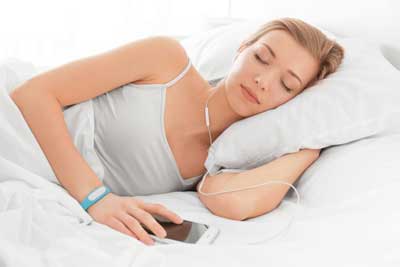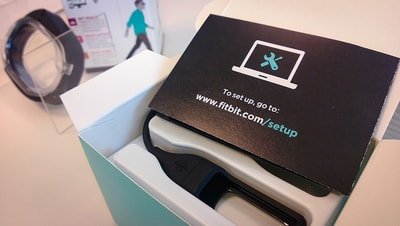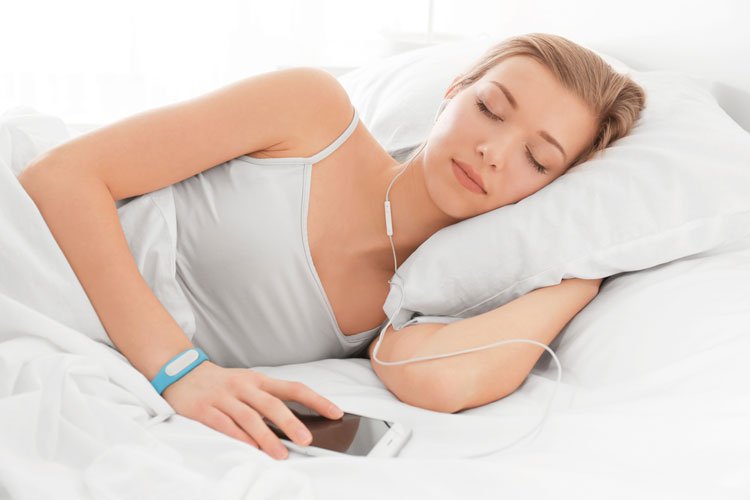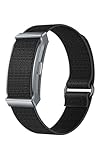
Obviously, technology is pretty cool. We can talk face-to-face with someone 2,000 miles away, read an entire book, and see satellite images of the whole planet, all via our phones. Admittedly, though, some technology is a little weird. Those same phones broadcast our location 24/7 and provide us with a never-ending stream of news and political commentary.
Now, your wristwatch can have all the functionality of your mobile phone, which, again, is cool, but can also be weird. One of the most common tools of Smartwatches is health tracking apps that provide you with insights about how far you’ve walked, your heart rate, and your sleep patterns. That last function is where the cool/weird dichotomy really comes into play.
Tracking your sleep patterns can provide you with a lot of useful information for your health needs, but it’s still a little strange to think your watch is collecting information on you while you’re unconscious. How exactly does it even do that? Well, that’s what we’re going to investigate today as we examine how sleep trackers work and which ones are worth your time.
What exactly are sleep trackers tracking?
Whether you’re talking about a Fitbit or a smartwatch or now also hybrid smartwatches, they are tracking the same data: movement.
Inside your device is a “tri-axis accelerometer,” which probably sounds like the kind of technobabble but is, in fact, not all that intricate. Basically, it’s a fancy gyroscope and it measures your wrist movement. The process of measuring your body’s movement is called “actigraphy.” When you are asleep, your body is mostly motionless, give or take an involuntary jerk here or there.
In fact, when you are dreaming, your body is usually temporarily paralyzed, an evolutionary development that kept our ancestors (and us) from acting on our dreams and accidentally doing harm to ourselves. The stiller you are, the more likely you’re having a restful sleep.
Movement isn’t the most precise way to measure sleep quality, though, so wrist-worn sleep trackers aren’t sufficient for diagnosing deep sleep issues. If you’re struggling with severe insomnia or some other sleeping disorder, you should talk with your doctor who will possibly put you in a sleep lab for more thorough testing.
It’s important to note that actigraphy isn’t a diagnostic tool that can tell you if there is something wrong with you. It also can’t tell you which stage of sleep you are in, so it won’t let you know how “deep” of a sleep you are getting.
Sleep trackers merely provide data that can be used as comparative mile markers for your personal health. They provide a log of sleep patterns that you can compare to your daily routines to better understand how your body is recharging at night.
Why track your sleep?
If all of this is new to you, you might be wondering why you would even want a measurement of your sleep patterns. After all, you know when you’ve had a good night’s sleep. Either you’re tired in the morning or you’re not. Do you really need to get an advanced tech involved in the process?
In truth, the science of sleep is considerably more complex than how tired you feel. Everything from athletic ability to heart health, memory to sexual performance is affected by the amount and quality of sleep that you get. Though eight hours of sleep is the standard recommendation (the necessary hours decline with age), it’s just as important how you sleep as how much.
Should I invest in a sleep tracker?
Now that we’ve covered the basics of what sleep trackers do, the big question is, are they necessary? Strictly speaking, of course not. After all, generations of our ancestors never had them and managed just fine. Tracking your sleep won’t fix a major sleeping disorder or magically improve your memory.
On the other hand, for those who are trying to live their best lives or keep abreast of their personal health, a sleep tracker is a simple and, generally, inexpensive way to know. As long as you aren’t suffering from a sleeping disorder, the data that is collected during a night’s sleep can be integrated into your regime for a greater understanding of one’s body.
Sleep deprivation is a serious health concern and affects some more than others. Professions that work rotating shifts, such as nursing, firefighting, and law enforcement can be especially problematic. It’s especially hard on workers that cross time zones on a regular basis such as flight attendants, pilots, and international business travelers; having an efficient way to track sleep can be a very helpful tool to recovering their sleep patterns.
🏆 #1 Best Overall
- SCREENLESS FITNESS TRACKER BAND.Minimalist fitness tracker band designed to track daily movement and activity automatically — no screen, no notifications, just focused tracking for everyday fitness routines.
- ACTIVITY & STEP TRACKING.Records steps, daily movement, and workout activity throughout the day, working as a simple pedometer-style activity tracker for consistent daily use.
- SLEEP TRACKING FOR DAILY ROUTINE.Tracks sleep duration and sleep patterns through the companion app, helping you better understand how rest fits into your daily routine.
- LIGHTWEIGHT FITNESS BAND FOR ALL-DAY WEAR.Soft, lightweight fitness band built for 24/7 wear — comfortable for workouts, work, and sleep without the bulk of a fitness watch.
- WATERPROOF WEARABLE WITH APP SYNC.Water-resistant wearable that syncs with a mobile app to view activity and sleep data. Long battery life supports continuous tracking with fewer recharges.
Is a smartwatch better than a Fitbit?

A few years ago, Fitbits and similar health trackers flooded the market. We’ve all known that one person in our office or in our group of friends loves to make announcements about how many steps they took each day. Health trackers have become so ubiquitous that no one bats an eye when they see those, admittedly, strange wristbands on someone else’s arm.
Many of the first-generation health trackers were pretty basic, often being nothing more than a rubber band with a box for the accelerometer and a USB port. The newest models are quite a bit more advanced, with Fitbit moving into the watchmaking business.
Take, for instance, the Fitbit Versa, which is essentially a smartwatch and includes literally dozens of features and apps.
Just as Fitbit has moved into the smartwatch business, some smartwatch manufacturers have started proudly touting the health tracking features of their products. Most smartwatches have to charge every night, which negates a sleep tracker feature, but there are some watches that do provide the tool.
The Samsung Gear Fit2 is the quintessential smartwatch and health tracker. It acts as your phone, runs most of the apps of a smartphone, keeps health data, and comes with a hefty price tag. The health tracker measures heart rate counts calories and tracks movement.
Its long-lasting battery means that it doesn’t need to be charged every night.
If you have been looking at getting a smartwatch and you want a health tracker, the big-name smartwatch manufacturers are probably the way to go. On the other hand, if a smartwatch doesn’t interest you, you’d probably be better off just investing in a dedicated health tracker. They will generally be cheaper and the newer ones include numerous features for tracking many facets of your health profile, including menstruation.
If you’re looking for more info on the topic and wonder if they really are accurate, check out this 2 min video for an expert’s opinion from the Stanford Sleep Center.
As you can see, in academic studies the equipment used is much more high-tech than your average consumer fitness tracker. As mentioned in the video, although they are nowhere near as accurate as professional sleep monitoring systems, these gadgets can help make us more aware of our general sleep patterns.
Hopefully, this information has answered most of your questions.
Best of luck with your shopping, and be sure to sleep tight.
Rank #2
- Inspire 3 is the tracker that helps you find your energy, do what you love and feel your best. All you have to do is wear it.Operating temperature: 0° to 40°C
- Move more: Daily Readiness Score(1), Active Zone Minutes, all-day activity tracking and 24/7 heart rate, 20+ exercise modes, automatic exercise tracking and reminders to move
- Stress less: always-on wellness tracking, daily Stress Management Score, mindfulness sessions, relax breathing sessions, irregular heart rhythm notifications(2), SpO2(3), menstrual health tracking, resting heart rate and high/low heart rate notifications
- Sleep better: automatic sleep tracking, personalized Sleep Profile(1), daily detailed Sleep Score, smart wake vibrating alarm, sleep mode
- Comfortably connected day and night: calls, texts & smartphone app notifications(4), color touchscreen with customizable clock faces, super lightweight and water resistant to 50 meters, up to 10 day battery life(5)




